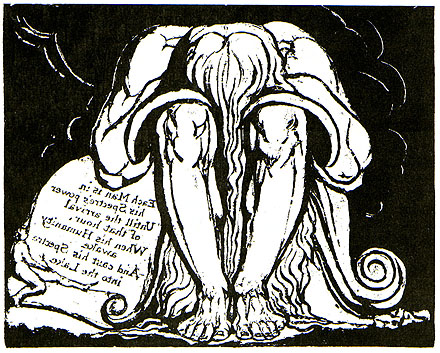First posted by Larry on Monday, November 16, 2009
Here are the famous lines again:
"I give you the end of a golden string
Only wind it into a ball.
It will let you in at Heaven's gate
Built in Jerusalem's wall."
(Beginning Chapter 4 of Jerusalem (Erdman 231)
You may find many interpretations of this provocative poem. Roger Easson on page 313 ff of Blake's Sublime Allegory provided the one that inspired this post.
Blake gave us the end of the string; Ariadne got a thread that enabled her friend Theseus to negotiate the labyrinth. Blake's string was already laid out (sort of). With it we are able to find our way out (of the maze of life) and in (to the Eternal). In the vernacular out of the insidious consumer culture materialism into a life guided by Spirit, through Heaven's gate.
Blake offers us escape -- and salvation. Escape from single vision, from Ulro, from confining our life to the same old thing. The salvation is freedom-- to be creative and know we're alive.
The Minotaur is your Selfhood. To get free of it is life.
 |
| Wikipedia Commons Jerusalem Plate 41, Copy A detail |
"Each man is in his Spectre's power
Until the arrival of that hour
When his humanity awake,
And cast his Spectre into the Lake."
The Spectre is the Selfhood, and with his golden string Blake gave us the means to be free of it.
Easson, Page 314:
"In this case, though, to follow the mythic parallel to its conclusion, before the the reader can begin to wind up the ball, he must conquer his spiritual Minotaur, the selfhood. At this point, winding up the string may lead the reader 'in at heaven's gate,/Built in Jerusalems wall'; for then he will be traveling in the 'Spirit of Jesus' which if continual forgiveness of Sin.' If however the reader does not subdue the selfhood, then the essential task enjoined by the metaphor - the destruction of the Minotaur - is unfulfilled and the reader succumbs to the selfhood, leaving Jerusalem a literary puzzle without a solution."
.

No comments:
Post a Comment